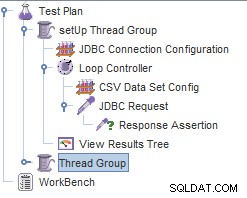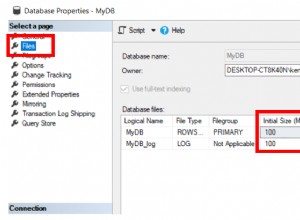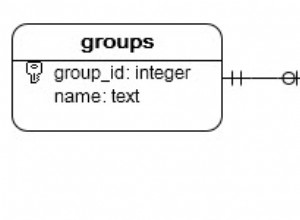Si vous êtes sur SQL Server 2005 ou une version ultérieure, vous pouvez le faire comme un simple changement de métadonnées (NB :ne le fait pas nécessite une édition prenant en charge le partitionnement comme je l'ai indiqué à l'origine).
Exemple de code volé sans vergogne à partir de la solution de contournement par Paul White sur cet élément Microsoft Connect .
USE tempdb;
GO
-- A table with an identity column
CREATE TABLE dbo.Source
(row_id INTEGER IDENTITY PRIMARY KEY NOT NULL, data SQL_VARIANT NULL);
GO
-- Some sample data
INSERT dbo.Source (data)
VALUES (CONVERT(SQL_VARIANT, 4)),
(CONVERT(SQL_VARIANT, 'X')),
(CONVERT(SQL_VARIANT, {d '2009-11-07'})),
(CONVERT(SQL_VARIANT, N'áéíóú'));
GO
-- Remove the identity property
BEGIN TRY;
-- All or nothing
BEGIN TRANSACTION;
-- A table with the same structure as the one with the identity column,
-- but without the identity property
CREATE TABLE dbo.Destination
(row_id INTEGER PRIMARY KEY NOT NULL, data SQL_VARIANT NULL);
-- Metadata switch
ALTER TABLE dbo.Source SWITCH TO dbo.Destination;
-- Drop the old object, which now contains no data
DROP TABLE dbo.Source;
-- Rename the new object to make it look like the old one
EXECUTE sp_rename N'dbo.Destination', N'Source', 'OBJECT';
-- Success
COMMIT TRANSACTION;
END TRY
BEGIN CATCH
-- Bugger!
IF XACT_STATE() <> 0 ROLLBACK TRANSACTION;
PRINT ERROR_MESSAGE();
END CATCH;
GO
-- Test the the identity property has indeed gone
INSERT dbo.Source (row_id, data)
VALUES (5, CONVERT(SQL_VARIANT, N'This works!'))
SELECT row_id,
data
FROM dbo.Source;
GO
-- Tidy up
DROP TABLE dbo.Source;




